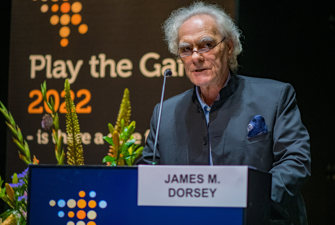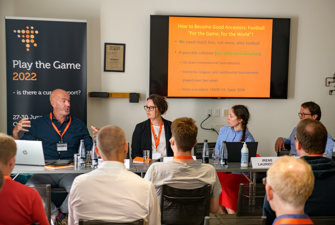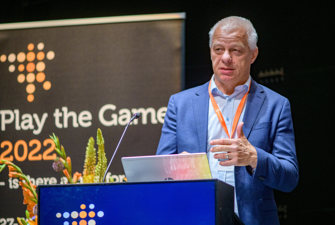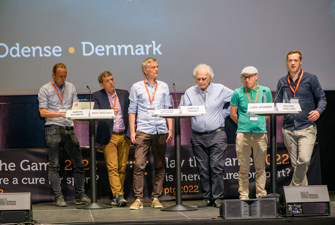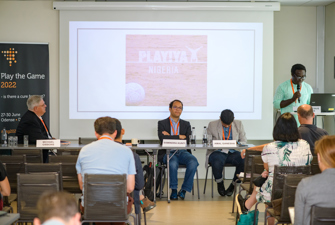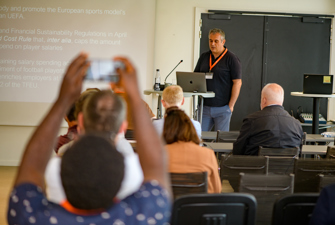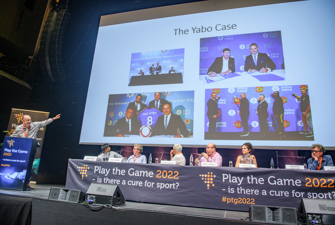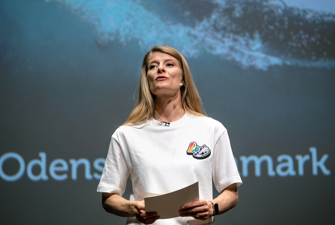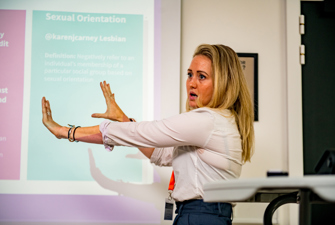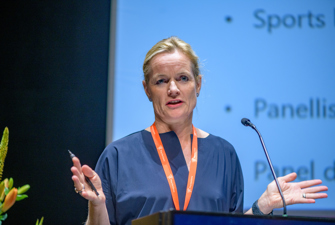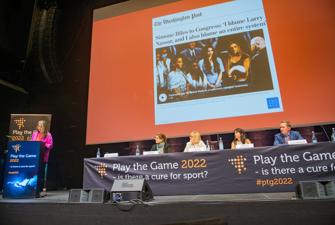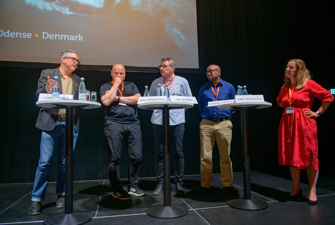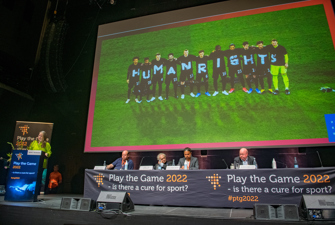Investigative data project exposes dubious actions in betting industry
Four journalists working together have uncovered how data companies often sell data to unlicensed betting companies without checking if betting operators have the required licenses. At the same time many of these data companies provide integrity services to sports bodies.
An investigation into links between provision of live data to the betting industry, particularly poorly or unregulated operators, and how this can provide a fertile ground for match-fixing was explained on the third day of Play the Game by a team of four journalists who had spent the past nine months investigating the data and betting industries.
Many of these unregulated data companies provide integrity services to sports bodies, yet at the same time also sell data to regulated, poorly regulated, and unlicensed betting operators. Both poorly regulated and unlicensed operators do not report suspicious betting, which can indicate potential match-fixing.
At the top level of sport, these companies – often described as Asian facing, as they target markets in Asia where betting is often illegal – are increasingly advertising online betting at English Premier League clubs even though these operators cannot take bets in Great Britain.
Premier League grounds swamped by betting adverts
Over the period of Christmas 2021, the Devil is in The Data project monitored adverts for betting operators at Premier League grounds, and found a competition swamped by betting adverts.
The project, which was supported by a grant from Investigative Journalism for Europe (IJ4EU), investigated a number of these mysterious betting operators, which were often based in or focused on customers in Asia and used football to target customers in parts of the region where betting is illegal.
The companies often have opaque corporate structures and operators registered in the Philippines, which sponsor clubs in the Premier League, are linked to sex-trafficking and prostitution.
The public faces of these companies can be false, and an investigation into Manchester United’s new betting partner Yabo Sports found that the ‘boss’ was really a male model sent out to represent the recalcitrant operator’s owners. Another investigation found links to a suspected triad gangster.
Bets are routinely offered on semi-professional and youth games
The companies also offer bets on low level games, which law enforcement bodies such as Europol warn are far easier to corrupt, but do not report signs of suspicious betting to the authorities as their licenses do not include this as a condition.
Digital scraping uncovered close to a thousand semi-professional and youth games on global betting markets every weekend. Live data collected from English games as low as the eighth level is routinely collected and sold to operators such as 1XBet, yet the players who are swamped by betting adverts are also the subject of a crusade against them placing bets.
The project looked at the activities of 1XBet, a controversial betting operator that sponsors FC Barcelona, but which also stages and streams a variety of sports that might be considered as fake from indoor football to ice hockey with ‘players’ engaged to look like real clubs and teams.
A visit to Cyprus to track down 1XBet’s operations found a network of ghost offices and also exposed how the operator was declared bankrupt in Curaçao in June 2022 and faced losing its licence.
No meaningful background checks on betting partners
The sporting world’s inability to do any meaningful background checks on betting partners was also exposed an investigation into the international basketball federation FIBA’s new global betting partner J9, which found that the Philippines based operator is not covered by any licence.
Some data and betting companies were unaffected by Russia’s invasion of Ukraine, while the stake held by a director of a leading sports data provider in Russia’s biggest licensed betting operator was also exposed.
To expose the role of data companies in enabling the offering of vulnerable, low-level games, the project created a fake unlicensed Asian betting operator, Fanzone.bet.
Fanzone’s speciality was to offer bets on the lowest games possible and the ‘company’ asked data companies to supply it with data. Over ten well-known data companies responded. Just two asked about a licence. One was happy to take the project’s word for it and although another one asked for proof, it was happy to supply data without actually seeing it.
As the online sports betting industry grows, the investigation posed important questions over the role of data companies in creating opportunities for match fixers to manipulate games, as well as the double standard of offering ‘integrity services’ to protect against match fixing while selling data to anyone who asked.
Read articles from the Devil is in The Data project
- Questions over how FIBA’s Global Betting Partner J9.com is licensed – October 2021
- The Asian Connection – Josimar, December 2022
- The Vanishing – Josimar, January
- Wild West: gambling advertising at Premier League grounds – Sports Integrity Initiative January 2022
- Isn’t it IQONIQ? – Josimar, January 2022
- Gambling with lives – Josimar, January 2022
- The Imitation Games – Josimar, March 2022
- Russian betting companies continue to sponsor football clubs after invasion – Play the Game, March 2022
- Ball Street – Josimar, June 2022
- Ghost chasing: 1xBet, sport’s elusive gambling sponsor - Sports Integrity Initiative, June 2022
- SportsModule – a vanishing act - Sports Integrity Initiative, June 2022
- Match-fixing heaven – Josimar, June 2022
- Meet Mr Chau - The triad gangster at the heart of English football gambling – Josimar, June 2022
- While the bombs fall, so do table tennis balls... Sports Integrity Initiative, June 2022
- The English Patient – Josimar, June 2022
- Double Standards, U Bet – Josimar, June 2022
- Catfishing the sports betting data suppliers - Josimar, June 2022
